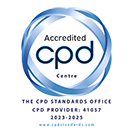4 February 2014
From Vulcan's Forge to the Kingdom of Hades: What Happens to Chemistry and Biology at Extremes of Pressure
Organised by:
SCI's London Group
University College London, London, UK
Registration Closed
This event is no longer available for registration.
Synopsis
Most of the chemistry we know and are taught is derived from observations made at or near the surface of the Earth, under an atmospheric pressure of around 15 psi. All our rules concerning molecular structure and chemical bonding including concepts such as valency, preferred oxidation state as well as the relative ordering of elements in the periodic table are made from these observations, that imply a certain distribution of electrons around the atomic nuclei. But what happens when the density is increased to more than twice or three times that at 1 atmosphere, as exists deep inside planets and stars? Does the chemistry of the elements change? That is one conclusion emerging from recent theoretical and experimental studies under extremely high compression. The results will change the way we think about some of the most basic chemistry concepts. Life as we know it is likewise concentrated at the surface of our planet. However, sampling expeditions to the deepest ocean trenches and below the rocky surface are discovering life forms that exist happily to pressures nearly two thousand times above atmospheric, and laboratory studies are revealing survival of organisms to pressures exceeding 20,000 atm. Like chemistry studies these high pressure biology experiments are causing us to re-examine fundamental ideas about what factors set and constitute the absolute limits for life.Programme
Accessibility Grants
SCI accessibility grants are available to support SCI members with disabilities, long term health conditions, those who require a carer, and members who are nursing parents to attend SCI events. Download an application form to apply for a grant.
Venue and Contact
UCL
Department of Chemistry
University College London
20 Gordon Street
London, WC1H 0AJ
Conference Team
Tel: 0207 598 1594
Email: Communications@soci.org
Fees
This is a FREE event. No need to book
Become an SCI Member and save on this and future events
See Membership OptionsSign up as an Event Member to join this event. SCI Full or Student Members receive discounts on event registrations
Booking Process/Deadlines
CPD Info
All delegates attending this meeting are able to claim CPD points.
Additional Info
Speaker
Prof Paul McMillan, University College London





